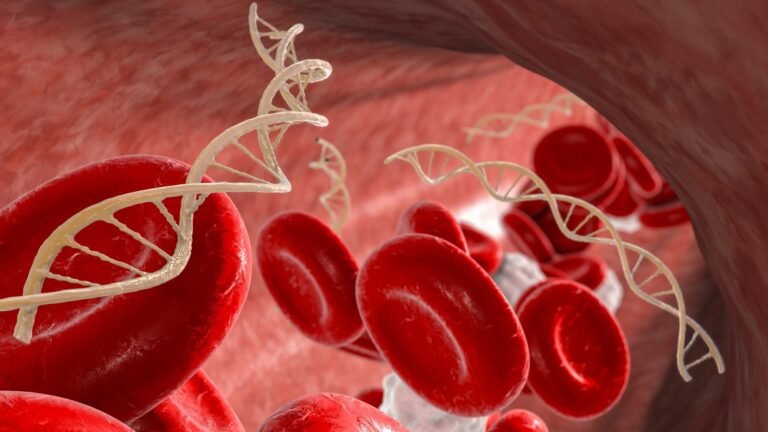In a recent study published in the journal JAMA Network Open, Researchers conducted a cross-sectional study of black and white middle-aged women to assess the effects of diet (specifically, consumption of added sugar and key nutrients) on their epigenetic age. Their study included 342 women (171 black and 171 white) whose 3-day dietary intake was scored using the Alternative Health Diet Index (AHEI), the Alternative Mediterranean Diet (aMED), and a new Epigenetic Nutrient Index (ENI).
Study: Essential nutrients, added sugar intake, and epigenetic age in middle-aged black and white women. Image Credit: Katerina Kon / Shutterstock
Study findings revealed that healthy diets with high aMED, AHEI and ENI scores were associated with younger epigenetic ages (measured using the second-generation GrimAge2 clock epigenetic marker). Added sugar intake was found to have the opposite effect, with high intakes corresponding to increased epigenetic age. Results quantified that each unit increase in aMED score was associated with a decrease in epigenetic age (β, −0.41), AHEI-2010 (β, −0.05), and ENI (β, −0.17), while each gram increase in added sugar intake was associated with an increase in epigenetic age (β, 0.02). Together, these findings suggest the profound effects of dietary behaviors on epigenetic aging and, in turn, the risk of chronic disease susceptibility.
Record
Epigenetic clocks are biochemical tests that measure a person’s biological aging regardless of chronological age. They are based on differential DNA methylation (DNAm) and have been shown to accurately predict an individual’s susceptibility to chronic age-related disease risk (eg, cancers, cardiovascular disease).
Several epigenetic clock markers have been developed due to their use in assessing the influence of behavioral, social, and environmental variables on holistic health and disease risk. The first-generation GrimAge marker is one of the most popular because of its sensitivity to associations between genomic instability, oxidative stress, and markers of systemic inflammation and subsequent risk of mortality and morbidity. The GrimAge series has recently been updated to version 2.0 (GrimAge2) with additional predictors and improved applicability across a wide range of ages and ethnicities.
Unfortunately, studies investigating associations between health behaviors (eg, diet – “epigenetic dieting” and “nutritional epigenetics”) and epigenetic clock markers are scarce. Even in the few studies that have been conducted, most have focused on white populations, limiting their global generalizability. Furthermore, while the positive effects of essential nutrients have been repeatedly verified, sugars (known to increase oxidative stress and proposed to accelerate epigenetic aging) have been largely excluded from the literature.
About the study
The present study aims to address current gaps in the literature by assessing epigenetic age associations between established dietary scores (the Alternative Health Diet Index [AHEI]the Alternative Mediterranean Diet [aMED]), a novel epigenetic nutrient marker [ENI]), and the epigenetic clock marker GrimAge2.
It follows a cross-sectional methodology with the study cohort derived from the United States (US) National Heart, Lung, and Blood Institute (NHLBI) Growth and Health Study (NGHS) at both baseline (1987–1999) and follow-up ( 2015-2019) periods. The cohort included white and black California women aged 9–10 years at baseline and 36–43 years at follow-up. Data collection included demographic (including race and ethnicity) and health records (including smoking status, chronic disease status, and current medication), saliva samples (for DNAm assessments), and online surveys (for nutritional assessment 3 days).
Epigenetic clock estimates were calculated using Horvath’s computer based on the GrimAge2 model (results presented as Cox Proportional Hazards regression scores), specifying the risk of all-cause mortality. Dietary quality indicators included two established (aMED and AHEI-2010) and one new (ENI) scoring methodologies, reflecting participants’ adherence to predefined healthy eating behaviors. High scores indicate a high intake of antioxidant-rich, inflammation-suppressing foods such as fresh fruits and vegetables and a low intake of red meat and highly processed foods.
“This study developed a new nutrient index (ENI) following the Mediterranean diet, but through a nutrient-based approach rather than a food-based approach. Nutrient selection was made a priori based on antioxidant and/or anti-inflammatory capacities as well as roles in DNA maintenance and repair documented in the literature.”
Added sugar intake was measured and its impact on GrimAge2 scores analyzed independently. All models were adjusted for potentially confounding covariates (age, memory and effector T-cell densities, smoking status, chronic disease, and current medication).
Study findings
The final sample cohort (after excluding five individuals with low-quality DNAm data or incomplete records) included 342 middle-aged women (171 black and white women, respectively). The mean age of the cohort was 39.2 years, with 43.9% (n = 150) smokers, 48.0% chronic disease (n = 164) and 17.0% (n = 58) currently on medication .
Mean nutritional index scores were AHEI-2010 = 55.4 (Range = 0-9; SD = 14.7), aMED 3.9 (0-110; 1.9) and ENI = 13.5 (-024 ; 5.0), indicating low to moderate nutritional quality. Mean sugar intake was 61.5 g (SD = 44.6 g).
GrimAge2 calculations revealed that healthier diets (higher scores) were associated with reduced epigenetic ages per unit score – aMED (β, -0.41), AHEI-2010 (β, -0.05) and ENI β, -0 ,05). Conversely, each gram increase in daily sugar intake was associated with accelerated aging (β, 0.02).
conclusions
The present study was the first to evaluate the association between epigenetic age and dietary intake in nonwhite women (Black, n = 171), the first to use the GrimAge2 clock, and the first to evaluate the role of sugar in epigenetic aging. In addition, it introduces a new nutritional assessment, the ENI index.
The study findings highlight that healthier diets (high aMED, AHEI or ENI scores) were associated with reduced epigenetic aging, while high sugar intake accelerated DNA methylation. Together, these findings highlight the profound effects of dietary choices on DNAm and, in turn, chronic disease risk.
